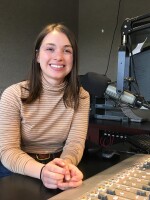When the Park City Council recently discussed the City’s selection process for affordable housing applicants, Mayor Andy Beerman commented that public support for the City’s housing efforts hinged on choosing a process that gives extra consideration to people based on their careers and how long they’ve worked in the area.
The Council decided on a weighted lottery system that gives preference to applicants who hold certain jobs—as emergency responders, such as police or firefighters, and as community builders, such as teachers and non-profit workers. Additional consideration is also given to those who have worked in the Park City area for more than five years and those who work within city limits. All applicants must meet a baseline of minimum qualifications, and then, if any of the four weighted categories apply, they can receive an additional “number in the hat,” so to speak, when the lottery happens.
Beerman says there are two housing needs in Park City—one is for workforce, which Beerman contends the City can’t address alone and for which it will seek support from other local employers; and the other is for community building, which is what Beerman says the weighted lottery that considers the role of police officers and teachers helps address. But he says it’s still a fair process, and the City’s most recent housing projects, Central Park Condos and The Retreat, demonstrate that.
“That doesn't mean they necessarily win," Beerman said. "It’s still a lottery at the end of the day, and they get an extra ball or such, and if you look at how it's worked out, it's working just as it should. Our two projects that came out last year are very diverse. They have seniors in them; they have young families in them; they've got service workers; they have teachers—it runs the gamut.”
At the Council discussion about the housing lottery, Councilmember Becca Gerber expressed concern that weighing the lottery in favor of some applicants also weighs it against others, particularly marginalized individuals—running contrary to the City’s social equity goals. Beerman thinks sense of community and diversity are important to residents, but his comment to the City Council that the City would lose support for affordable housing unless it considered “community builders” stems from his conversations with the public.
“Some of it has to do with potential impacts on their neighborhoods, and some of it has to do with what they think the City's role should be in building affordable housing," Beerman said. "So I think that we need to be very careful how we approach this, and the projects we do need to be oriented on community building—meaning, that they make our neighborhoods stronger.”
As for the question of social equity, Beerman says the lack of housing diversity citywide is a symptom of a more systemic issue—not a result of some people getting more odds in the housing lottery than others.
“We have an underserved class in town that struggles with low wages; they struggle with insecurity; they struggle with status; and because they’re in that position, they couldn't buy a house even through this program," Beerman said. "So if we start seeing more of our underserved in a position where they can purchase properties or apply for these affordable homes, then we're really getting to the root cause of this and making progress on our social equity issues. In the meantime, we think providing more rentals might address some of those needs in the community.”
A recent analysis of survey results by the Park City Community Foundation shows housing is the number one social equity-related issue for Park City Community members.



